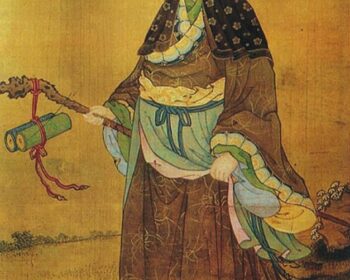真 武 -Zhen Wu The Story of the True Warrior Zhen Wu Da Di (真 武大帝 – the Great True Warrior Emperor) is also known as Xuan Wu (玄武 – Dark Warrior) and Mysterious Emperor
Read more

真 武 -Zhen Wu The Story of the True Warrior Zhen Wu Da Di (真 武大帝 – the Great True Warrior Emperor) is also known as Xuan Wu (玄武 – Dark Warrior) and Mysterious Emperor
Read more
The heavens are divided into ten directions The thirty-two heavens that result from the original matrix (元 綱 Yuangang) are in the four cardinal directions, with eight heavens per cardinal direction. You can also add
Read more
Wu Zu 五祖 refers to five most recognized Taoists (immortals) in the history. They are Wang Cheng and his student Zhong Li Quan, his second generation student Lv Dong Bin, his third generation student Liu
Read more
Qiu Chang Chun is a student of Wang Chong Yang the founder Quan-Zhen Taoism. Qiu himself is the founder of Long Meng Taoism Sect (Dragon Gate Taoist Sect), one of the mostly influential Taoist branches.
Read more
If you have decided to become a practicing Daoist, you should learn and internalize the Daoist doctrine. It is important to keep in mind what we expect of the practice. There are many methods and ways of Daoist practice.
Read more
If one cultivates Dao,internal practice or spiritual cultivation, depending on the practice there are restrictions on the consumption of meat, fish and sharp and pungent smelling vegetables and herbs.Spicy and pungent vegetables are also called the 5
Read more
The secont part will introduce more items and accessories in detail and give historical background informations.
Read more
A deep insight into daoist headwear and hair styles, introduction of the items and accessories in detail and historical background informations.
Read more
“San Huang” are three ancient Emperors commonly known by the names of Tian-Huang, Di-Huang and Ren-Huang. “Wu-Di” refers to five Heavenly Emperors who are the “Cang-Di of the East’, “Chi-Di of the South”, “Bai-Di of
Read more
“San-Tu” in Taoism means three special places. These are the most horrifying places in the universe. They are the place in hell where the blaze of death burns, the place in hell where the animals
Read more